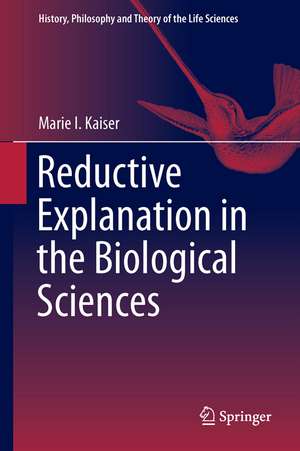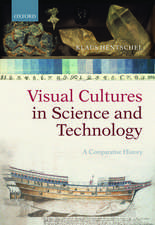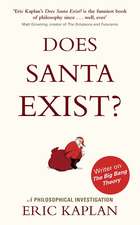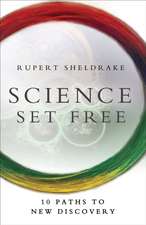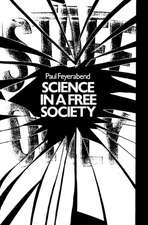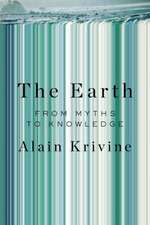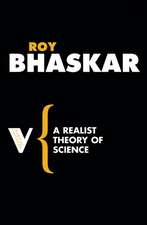Reductive Explanation in the Biological Sciences: History, Philosophy and Theory of the Life Sciences, cartea 16
Autor Marie I. Kaiseren Limba Engleză Hardback – 23 dec 2015
| Toate formatele și edițiile | Preț | Express |
|---|---|---|
| Paperback (1) | 640.24 lei 43-57 zile | |
| Springer International Publishing – 21 mar 2019 | 640.24 lei 43-57 zile | |
| Hardback (1) | 646.43 lei 43-57 zile | |
| Springer International Publishing – 23 dec 2015 | 646.43 lei 43-57 zile |
Din seria History, Philosophy and Theory of the Life Sciences
- 15%
 Preț: 642.83 lei
Preț: 642.83 lei - 18%
 Preț: 735.84 lei
Preț: 735.84 lei - 15%
 Preț: 644.95 lei
Preț: 644.95 lei - 9%
 Preț: 627.82 lei
Preț: 627.82 lei -
 Preț: 349.63 lei
Preț: 349.63 lei - 18%
 Preț: 1240.76 lei
Preț: 1240.76 lei - 18%
 Preț: 785.55 lei
Preț: 785.55 lei -
 Preț: 398.63 lei
Preț: 398.63 lei - 15%
 Preț: 701.06 lei
Preț: 701.06 lei -
 Preț: 389.11 lei
Preț: 389.11 lei - 15%
 Preț: 651.02 lei
Preț: 651.02 lei -
 Preț: 391.22 lei
Preț: 391.22 lei - 24%
 Preț: 590.18 lei
Preț: 590.18 lei - 15%
 Preț: 644.49 lei
Preț: 644.49 lei - 18%
 Preț: 1120.05 lei
Preț: 1120.05 lei - 15%
 Preț: 583.78 lei
Preț: 583.78 lei - 5%
 Preț: 1103.39 lei
Preț: 1103.39 lei -
 Preț: 438.69 lei
Preț: 438.69 lei - 15%
 Preț: 693.57 lei
Preț: 693.57 lei - 15%
 Preț: 638.57 lei
Preț: 638.57 lei - 5%
 Preț: 906.63 lei
Preț: 906.63 lei - 15%
 Preț: 692.09 lei
Preț: 692.09 lei -
 Preț: 353.99 lei
Preț: 353.99 lei - 18%
 Preț: 949.23 lei
Preț: 949.23 lei - 18%
 Preț: 735.21 lei
Preț: 735.21 lei - 18%
 Preț: 725.75 lei
Preț: 725.75 lei - 18%
 Preț: 792.19 lei
Preț: 792.19 lei -
 Preț: 357.63 lei
Preț: 357.63 lei - 24%
 Preț: 713.96 lei
Preț: 713.96 lei -
 Preț: 354.38 lei
Preț: 354.38 lei
Preț: 646.43 lei
Preț vechi: 760.50 lei
-15% Nou
Puncte Express: 970
Preț estimativ în valută:
123.73€ • 134.45$ • 104.00£
123.73€ • 134.45$ • 104.00£
Carte tipărită la comandă
Livrare economică 21 aprilie-05 mai
Preluare comenzi: 021 569.72.76
Specificații
ISBN-13: 9783319253084
ISBN-10: 3319253085
Pagini: 277
Ilustrații: XI, 277 p. 16 illus., 11 illus. in color.
Dimensiuni: 155 x 235 x 18 mm
Greutate: 0.59 kg
Ediția:1st ed. 2015
Editura: Springer International Publishing
Colecția Springer
Seria History, Philosophy and Theory of the Life Sciences
Locul publicării:Cham, Switzerland
ISBN-10: 3319253085
Pagini: 277
Ilustrații: XI, 277 p. 16 illus., 11 illus. in color.
Dimensiuni: 155 x 235 x 18 mm
Greutate: 0.59 kg
Ediția:1st ed. 2015
Editura: Springer International Publishing
Colecția Springer
Seria History, Philosophy and Theory of the Life Sciences
Locul publicării:Cham, Switzerland
Public țintă
ResearchCuprins
Chapter 1 Introduction.- Chapter 2 Meta-philosophical Preliminaries.- Chapter 3 Drawing Lessons from the Previous Debate.- Chapter 4 Two Perspectives on Explanatory Reduction.- Chapter 5 A Closer Look at Biological Explanations.- Chapter 6 The Ontic Account of Explanatory Reduction.- Chapter 7 Conclusion.- References.
Recenzii
“Reductive Explanation in the Biological Sciences offers a novel philosophical perspective on explanatory reduction by fruitfully distinguishing different important characteristics explanations may have. The account also excels by offering metaphilosophical reflections on normativity in philosophy of science.” (Ingo Brigandt, Notre Dame Philosophical Reviews, ndpr.nd.edu, August, 2016)
Textul de pe ultima copertă
This book develops a philosophical account that reveals the major characteristics that make an explanation in the life sciences reductive and distinguish them from non-reductive explanations. Understanding what reductive explanations are enables one to assess the conditions under which reductive explanations are adequate and thus enhances debates about explanatory reductionism. The account of reductive explanation presented in this book has three major characteristics. First, it emerges from a critical reconstruction of the explanatory practice of the life sciences itself. Second, the account is monistic since it specifies one set of criteria that apply to explanations in the life sciences in general. Finally, the account is ontic in that it traces the reductivity of an explanation back to certain relations that exist between objects in the world (such as part-whole relations and level relations), rather than to the logical relations between sentences. Beginning with a disclosure of the meta-philosophical assumptions that underlie the author’s analysis of reductive explanation, the book leads into the debate about reduction(ism) in the philosophy of biology and continues with a discussion on the two perspectives on explanatory reduction that have been proposed in the philosophy of biology so far. The author scrutinizes how the issue of reduction becomes entangled with explanation and analyzes two concepts, the concept of a biological part and the concept of a level of organization. The results of these five chapters constitute the ground on which the author bases her final chapter, developing her ontic account of reductive explanation.
Caracteristici
Novel and unique analysis of concepts that are essential to many philosophical debates (such as the concept of reductive explanation, reductionism, and level) Argues that reductive explanations in life science possess three features including displaying a lower-level character, and a simplification of the system’s environment Scrutinizes the question on how entangled the issue of reduction becomes with the issue of explanation
